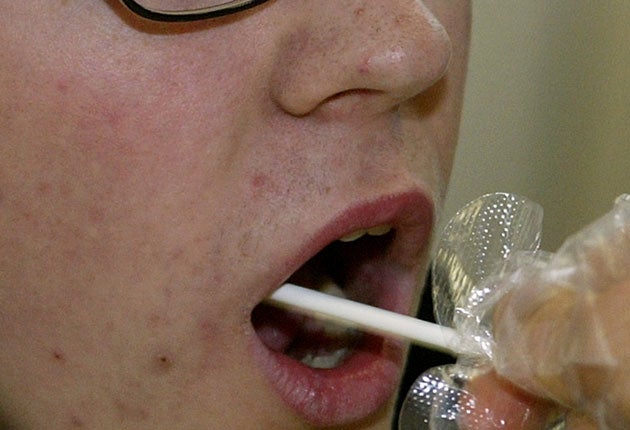Terror suspects' DNA could be held for life

Terror suspects who are released without charge could face having their DNA profiles stored for life, it was revealed today.
Proposals announced by the Home Office could see the information on anyone arrested for terrorist offences but either not charged or acquitted kept indefinitely on the national database.
Under the plans, senior police officers would review each case every two years on national security grounds to see if holding on to the genetic profile of each individual was warranted.
Even under 18s arrested but not charged could have their DNA profiles stored for much longer periods than for other crimes.
Home Office minister Alan Campbell said terror offences needed to be treated differently from other crimes because of the length of police investigations.
He said the proposals were "proportionate" and would ensure the right people were on the database.
"The reality is that many investigations of certain terrorist activity take a very long time indeed, and they have to be treated differently to the other offences we are talking about," he said.
"In some instances the information could be held for longer, but there's a review procedure and if the evidence is there that it is not necessary to hold that data it could come off earlier."
In a policy document launched today, the Home Office signalled a partial retreat in the face of outrage over plans to hold the DNA of thousands of innocent people for more than a decade.
Adults who are arrested but not convicted of a serious crime will have their profiles held for six years instead of the 12 proposed this summer.
Juveniles who are cleared or not charged with serious crimes will have their data kept for three years, or six if they are aged 16 or 17.
The earlier consultation proposed holding data on all under 18s arrested for a violent or sexual crime for 12 years, even if they were not convicted.
But for minor crimes committed by young offenders, the proposals have been toughened up.
A first conviction will lead to profiles being held for five years.
The Government had suggested all young offenders found guilty of minor misdemeanours should be removed from the database when they reached 18.
Ministers were forced to review the current policy, which allows police to hold profiles of every person arrested indefinitely, after a European Court of Human Rights ruling last year.
Judges in Strasbourg said the "blanket" policy breached human rights because it treated everyone the same regardless of the offence or whether they were convicted.
Between half a million and a million people with no criminal convictions have their DNA profiles stored on the database, the largest of its kind in the world.
